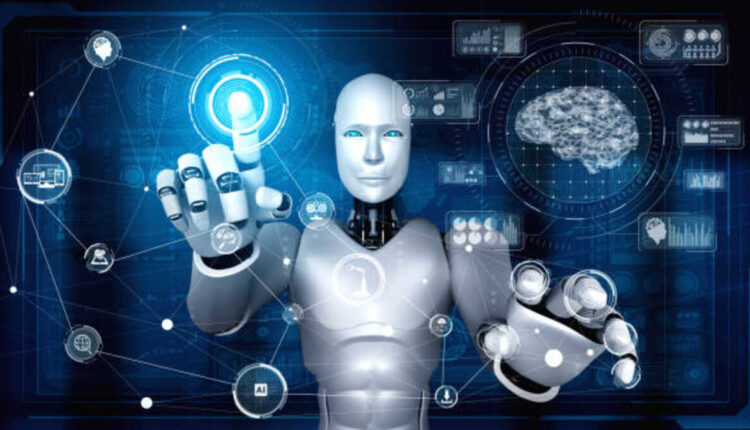Pattern recognition is the ability of machines to sort through data streams and detect repeating patterns within them using artificial intelligence (AI). It can then be used for predictive analyses or decision-making processes and analyze various forms of data such as texts, images, or audio files.
Pattern learning AI remains mysterious for those interested in AI but remains an intriguing prospect. It could open up many new applications.
It can analyze data at a large scale.
Patterned Learning AI is an innovative tech company that creates artificial intelligence (AI). Their advanced solutions could have significant ramifications across various industries; currently in stealth mode – a strategy commonly employed by tech companies to prevent competitors from gaining insights into their unique technology – this company remains hidden.
One of the greatest strengths of modern AI lies in its ability to recognize patterns at scale. This feature allows machines to scour vast data sets for repeat occurrences that can be used for prediction or decision-making processes. Pattern recognition can be applied to text-based files, visual images, or audio files.
Patterned learning AI offers another benefit in its rapid and accurate analysis of complex data inputs, allowing it to spot patterns often missed by human analysts quickly and to process this data at a much higher speed than humans, saving both time and resources in processing speed and saving on resources needed for human analysis. With its ability to recognize connections that might otherwise remain hidden at more minor scales, patterned learning AI technology allows businesses to make better decisions while driving innovation forward more efficiently than ever. Its efficiency can help companies make more intelligent decisions while driving innovation forward and saving time and resources faster when processing this data. Its efficiency allows companies to make better decisions and drive innovation forward, while its power can help optimize business operations while uncovering hidden opportunities otherwise unnoticed by human analysts — something no human analyst ever could do!
It can make accurate predictions.
Pattern recognition is a fundamental subfield of machine learning that enables data analysts to make accurate predictions regarding data patterns. While computer vision specializes in image recognition, pattern recognition encompasses all data analysis and interpretation areas – making it essential in applications like e-commerce, transportation, healthcare, and other industries.
AI-based systems are increasingly capable of handling complex tasks more rapidly and efficiently than human workers can while simultaneously being able to spot errors and avoid human biases, resulting in more productive outcomes. Many organizations have begun adopting pattern recognition AI for business processes and decision-making.
Pattern recognition AI technology can be seen most prominently in the video game industry, where players use gestures to control their characters’ actions. Medical applications for this technology include recognizing patient facial expressions and movements so doctors can perform more accurate diagnoses; Pattern recognition AI can even detect symptoms of mental illness or dementia by tracking how people move their hands.
The company is seeking talented engineers to work on cutting-edge technologies. A paid internship program is offered for students interested in building and deploying scalable applications on Amazon Web Services. Ideal applicants should possess strong Java development experience and an interest in artificial intelligence.
It can spot anomalies.
Anomaly detection is an essential capability of any business. It helps prevent fraudulent transactions, identify equipment failures, and optimize overall operations – yet identifying these anomalous details can be challenging without proper tools. Anomaly detection systems use AI and machine learning (ML) technology to automate this process for faster detection.
An anomaly in a dataset is defined as any point that stands out from its average values, such as by being far off from what would usually be expected in that dataset. Various algorithms exist for spotting anomalies; two are LOF and k-nearest neighbors. LOF compares density levels among surrounding points – if density drops significantly, it could indicate outlier status; k-nearest neighbors is an unsupervised machine learning algorithm designed to detect anomalies and can be applied across large and small datasets.
Anomaly detection is powerful in security, health care, and manufacturing environments. It identifies suspicious patterns that might indicate fraud, cyber-attacks, or server outages and ways that lead to improved patient outcomes or more efficient manufacturing processes. Machine Learning (ML) algorithms have proven particularly valuable here as they adapt to changing data trends automatically while picking out abnormalities that humans might miss – in cases of fraud detection, this technology has saved companies millions in revenue by uncovering fraudulent activities before they become an issue.
It can identify patterns.
Pattern recognition is an instrumental AI technique as it enables machines to identify patterns in data inputs and detect anomalies that will help make decision-making more efficient and increase predictive model accuracy. Furthermore, pattern recognition provides more efficient processing of data across industries.
Numerous businesses use pattern recognition technology to automate their decision-making process. Walmart uses pattern recognition to detect trends in customer buying behavior; for instance, when hurricane season looms, customers stock up on all essentials such as water and batteries but also purchase more strawberry Pop-Tarts. Using this insight allows Walmart to send extra trucks filled with these tasty treats directly to stores in hurricane-prone regions.
Pattern recognition algorithms have also proven invaluable in helping companies identify phishing attempts and fraudsters. Pattern recognition algorithms have proved essential in uncovering banking fraud and other types of illegal activity by monitoring how people use websites and flagging any anomalies for human review.
Patterned Learning AI alludes to its involvement with pattern recognition – an approach to machine learning focused on discovering patterns. This branch of machine learning extends beyond computer vision’s focus on image recognition, potentially impacting industries from healthcare to marketing.

